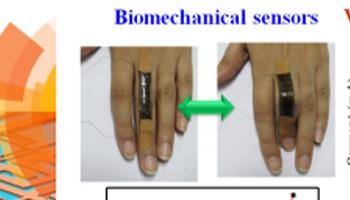-
Biological Chemistry
Areas of research include development of bio-inspired catalysts, chemically modified biomolecules, sensors and biomimetics. Structural biochemistry, computational and spectroscopic tools are used for gaining insights into biological processes/systems, interactions of drugs with biomolecules and membrane physiology.

-
Catalysis
Homogeneous and heterogeneous catalyst design and development to enable chemical transformations are undertaken. Broadly research in this area involves design of organometallic complexes, organic molecules, hybrid materials, soft materials and enzyme derived catalysts for a range of transformations.

-
Inorganic Chemistry
The department has been active in a variety of fields ranging from designing artificial photosynthetic units to making qubits for quantum computing. Active areas of research include organochalcogen chemistry, supramolecular assembly, study of electron transfer complexes and development of nanomaterials.

-
Materials
A broad range of inorganic, organic, hybrid, and soft materials are being developed with a focus on catalysis, energy generation, energy storage, sensing, magnetism and conductivity. In addition, there is an emphasis on making smart materials and development of tools for understanding structure-property relationship.

-
Organic Chemistry
The department has been actively involved in extending the frontiers of organic chemistry in domains of asymmetric and natural product synthesis focussing on methodology improvement, total synthesis and process development. Broad areas of chemical biology, biomimetic materials and therapeutics are being pursued by various research groups. The department also delves into computational studies to gain mechanistic insights into organic reactions and biological processes.

-
Physical Chemistry
Physical chemists of our department are actively involved in investigating variety of problems related to understanding intermolecular forces responsible for modulating the properties of materials, dynamics of molecules in the gaseous and condensed phase, reaction kinetics, electrochemical behaviour of materials, and thermodynamics. Computational studies are used to support experiments and new theories are developed to predict molecular structure and properties. In addition, interesting problems in nano-materials, biophysical Chemistry and chemical biology are also being addressed using various spectroscopic, scattering, and microscopy tools

-
Spectroscopy
Sophisticated experimental techniques such as Ultrafast Spectroscopy, Infrared laser spectroscopy, Single molecule fluorescence imaging have been used to study dynamics and properties of molecules in the gas or in the condensed phase. Raman spectroscopy is also used for getting more insights in the physical properties of different materials designed and developed by various faculty.

-
Synthesis
Synthetic strategies are developed to access a broad range of natural products, bioactive molecules, catalysts and materials. New approaches for building chemical bonds, assembly of molecules and waste minimization are explored. Research in the domain of catalytic and flow chemistry processes that increase synthetic efficiency with reduction in costs for industrial production is carried out.

-
Theory and Computation
Quantum and statistical mechanical methods are developed and applied to address a broad range of interesting phenomena in chemistry, biochemistry and material science. For this we rely on mathematical modelling and high performance computing.





